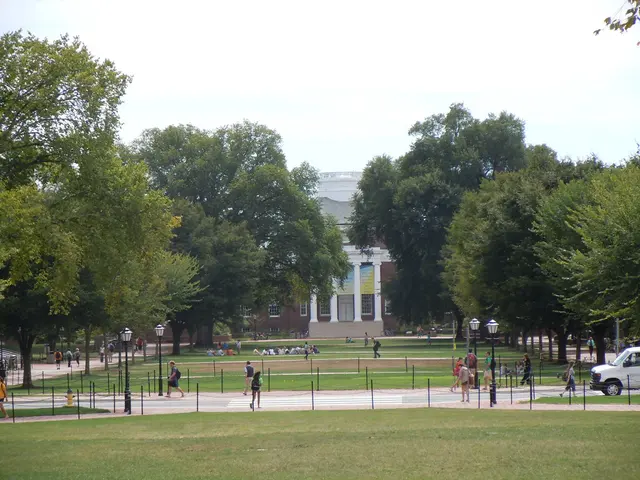Exploration and Study of Physical Phenomena and Galactic Mysteries: Physics and Astronomy Department's Curriculum
**Oberlin College Offers Flexible Physics and Astronomy Program**
Oberlin College's Physics and Astronomy department offers a versatile major that encourages students to explore various specializations and career paths. While the department does not formally declare concentrations, students can informally specialize in areas such as astronomy, applied physics, theoretical physics, education, and outreach.
The college's liberal arts curriculum allows students to shape their major through electives, independent study, and thesis work, providing a well-rounded education that emphasizes both breadth and depth. Students may also pursue double majors or minors in related fields, such as Mathematics, Computer Science, or Environmental Studies, to further broaden their knowledge.
Graduates with a Physics and Astronomy degree from Oberlin are well-equipped for a variety of career and graduate school paths. Opportunities include advanced degrees in physics, astronomy, engineering, or related STEM fields, as well as research careers in academic, government, or private sector laboratories. Additionally, students may pursue careers in science education, teaching at secondary or post-secondary levels, or roles in science policy and outreach.
Data science, engineering, and science communication and policy are other career paths that leverage the strong quantitative and problem-solving skills developed through a Physics and Astronomy major. Oberlin's liberal arts environment also encourages careers outside traditional STEM fields, including law, medicine, and business.
Oberlin College places a strong emphasis on undergraduate research, a hallmark of its physics and astronomy program. Opportunities include collaborating with professors on ongoing research in astrophysics, condensed matter, quantum mechanics, and other areas. Upper-level students often undertake independent research projects, sometimes culminating in a senior thesis. Summer research fellowships, both on campus and at national labs or other institutions, are also available.
Oberlin's historic observatory provides hands-on experience with astronomical observation and data analysis. Students may also participate in research that bridges physics with other sciences, computer science, or environmental studies.
For the most current and detailed information, prospective students should consult Oberlin College's Physics and Astronomy department directly, as program specifics can evolve and may not be fully captured in public search results.
- Pursuing a Physics and Astronomy degree at Oberlin College not only prepares students for careers in STEM fields like engineering and astrophysics, but also opens up opportunities in science education, data science, engineering, and science communication and policy.
- The versatile Physics and Astronomy major at Oberlin College offers a path for students to specialize in areas such as astronomy, education, and outreach, providing a well-rounded education that embraces both space-and-astronomy and education-and-self-development.




